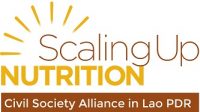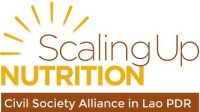Nutrition
Delegates adopted 2 resolutions on nutrition. The first, drawn up in response to the recently launched UN Decade of Action on Nutrition from 2016 to 2025, urges countries to make concrete policy and financial commitments to improve people’s diets, and report back regularly on those policies and investments.
It calls on UN bodies to guide and implement national nutrition programmes and support monitoring and reporting mechanisms. It specifically requests that WHO and FAO work together to help countries develop, strengthen and implement their plans and maintain an open access database of commitments for public accountability.
The second welcomed WHO guidance on ending the inappropriate promotion of foods for infants and young children. The guidance clarifies that, in order to protect, promote and support breastfeeding, the marketing of “follow-up formula” and “growing-up milks”—targeted for consumption by babies aged 6 months to 3 years—should be regulated in just the same manner as infant formula for 0 to 6-month-olds is. This recommendation is in line with the International Code of Marketing of Breast-milk Substitutes adopted by the World Health Assembly in 1981. Milk that is marketed as a general family food is not covered by the guidance, since it is not marketed specifically for feeding of infants and young children.
In light of the poor nutritional quality of some food and beverages marketed to infants and young children, the WHO guidance also indicates that foods for infants and young children should be promoted only if they meet standards for composition, safety, quality and nutrient levels and are in-line with national dietary guidelines.
The guidance also lays out key principles of how health professionals should interact with companies that market complementary foods. It recommends that health professionals do not accept gifts or free samples from these companies. They should not distribute samples, coupons, or products to families nor allow the companies to provide education or market foods through their health facilities. The guidance also recommends that companies do not sponsor meetings of health professionals.
The resolution urges countries, health professionals, the food industry, and the media to implement the guidance. In the resolution, countries also requested support from WHO to implement the guidance and monitor and evaluate its impact on infant and young child nutrition. They asked WHO to work with other international organizations on promoting national implementation of the guidance, and to report back to the Assembly in 2018 and 2020.



